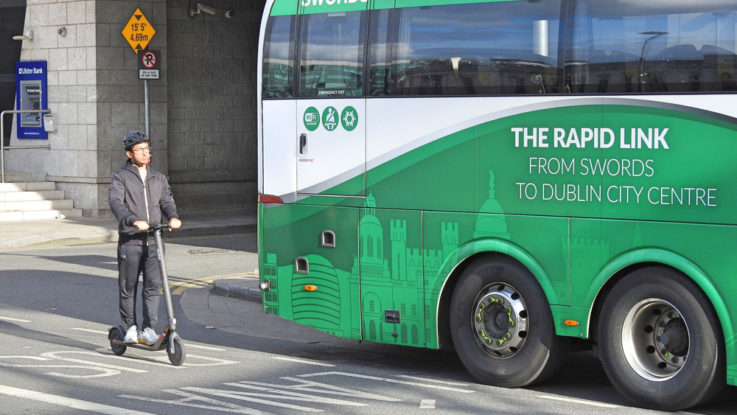
The city of Dublin, Ireland is running its first e-scooter trial across the five campuses of Dublin City University (DCU). The pilot involves e-scooter operator Tier, Irish micro mobility tech platform Luna, the Insight SFI Research Centre For Data Analytics and Smart DCU – a district of Smart Dublin.
Steps are currently being taken to make e-scooters street-legal across Ireland. The purpose of this e-scooter trial is to improve and set nation-wide standards for e-scooter safety, while also exploring the possibilities associated with computer vision-equipped micro mobility vehicles and the smart city data they can generate.
The data generated by the fleet will be analysed by Insight researchers, with a view to identifying smart city use cases and applications in line with the mission of Smart Dublin. The first such use case will be the development of an AI model that can alert cities in real-time to blocked footpaths and identify the cause of the blockage.
Tier and Luna will equip a fleet of 30 scooters with the computer vision technology. Luna’s technology will enable Tier e-scooters to run pedestrian detection and lane segmentation algorithms – which will prevent vehicles from being used on footpaths.
Tier and DCU will monitor the university’s transport-related emissions and the changes in user behaviour as regards transport options.
Minister Hildegarde Naughton TD, said: “Ireland is truly leading the way in the space of the use of e-scooters and I very much look forward to seeing this pilot get moving across DCU campuses. This is an interesting and exciting time in transport – the innovation and momentum is palpable here today. It is my job now and the job of (the) Government to play our part and progress the necessary legislation required for the safe use of e-scooters in Ireland. I look forward to seeing this pilot progress across campus and I am particularly interested in learning of its outcomes and insights which I am certain will inform us in further progressing legislation in this space.”